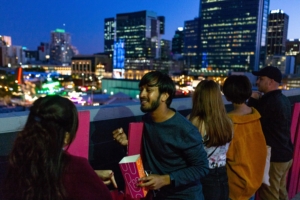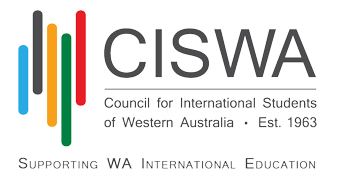Student Safety
International Student Safety in WA
Western Australia prioritizes the safety and well-being of international students through various measures and services provided by educational institutions, government agencies, and community organizations. Here are the key aspects of ensuring the safety of international students in WA:
- On-Campus Security:
- 24/7 Security Services: Many universities and colleges offer round-the-clock campus security patrols and emergency response services.
- Safety Escorts: Institutions often provide safety escort services for students traveling on campus during late hours.
- Emergency Phones: Strategic placement of emergency phones around campus for immediate access to security services.
- Government Support:
- StudyPerth Safety Resources: StudyPerth offers safety information and resources specifically for international students, including tips on personal safety, emergency contacts, and legal rights. Safety and Wellness | StudyPerth
- Police and Emergency Services: The Western Australia Police Force is accessible to all students, with clear guidelines on how to report crimes and seek assistance. For life-threatening emergencies, dial 000. For police to attend an incident, call 131444
- Health and Well-being Services:
- Counseling Services: Free or low-cost counselling services are provided by institutions to support mental health and well-being. You can also check your health care cover for services they provide as part of your health insurance.
- Health Services: Access to on-campus medical centres and health services ensures students receive necessary medical care. Most universities have medical and counselling services on campus.
- Legal and Consumer Protection:
- Legal Aid: Institutions and external organizations offer legal advice and support to help students with issues related to tenancy, employment, and consumer rights.
- Fair Work Ombudsman: Provides information on work rights and protections for international students working in Australia.
- Emergency Preparedness:
- Orientation Programs at your institution include information on personal safety, emergency procedures, and how to contact emergency services.
- Emergency Contacts: Students are provided with essential contact numbers for local police, fire services, and medical emergencies. Ensure you have your emergency contacts listed in your phone under the name ICE (in case of emergency)
- Accommodation Safety:
- Safe Housing Options: Universities offer secure on-campus accommodation with safety measures like secure entry and surveillance.
- Off-Campus Housing Assistance: Guidance on finding safe and reliable off-campus housing, including checks on rental agreements and safety standards.
- Welcome to Tenancy WA | Tenancy WA
- Transport Safety:
- Safe Public Transport: Information on using public transport safely, including night services and student discounts.
- Cycling and Walking: Guidance on safe cycling and walking routes, including helmet laws and pedestrian safety.
8. Water Safety – Western Australia’s beaches, while beautiful, do have some risks for the inexperienced swimmer.
- Avoid a tragedy this summer by taking water safety seriously | Department of Energy, Mines, Industry Regulation and Safety (commerce.wa.gov.au)
- How to Spot a Rip (and what to do if you’re in one) – Surf Nation
- Online Safety:
- Using the internet:
When using the internet, like anywhere in the world, you should protect yourself against online scams like ‘phishing’, online bullying and identity theft. Please contact the police if you think you have been a victim of a scam.
There are many government resources to help you protect yourself online and report abuse, including:
- Stay Smart Online: The Australian Government’s online safety and security website.
- ATO scam advice: Information on recognising and avoiding tax scams and fraud.
- ReportCyber: An online system to securely report cybercrime.
- Attorney-General’s Department: Advice on protecting your identity and recovering from identity crime.
- eSafety Commissioner: Information on how to protect your personal information to prevent it from being misused.
- Cultural Awareness and Anti-Discrimination:
- Cultural Sensitivity Training: Many institutions provide opportunities to promote understanding and respect among students from diverse backgrounds, including learning about First Nations people in Australia. See also: Australian Culture and Diversity | StudyPerth
- Anti-Discrimination Policies: Strict policies and support services to address any instances of discrimination or harassment.
By implementing these comprehensive measures, Western Australia ensures that international students have a safe and supportive environment for their studies and daily lives.
City After Dark
For many young people, a night out in the city centre promises an evening of fun and excitement but there are risks too.
After dark, the city changes and the safety risks increase. Young people may be vulnerable to crimes such as theft and assault.
City After Dark (CAD) tours are designed for secondary school students, tertiary students and community youth groups.
Led by a WA Police Officer and a Constable Care Foundation assistant, tours highlight how relatively safe areas during the day become riskier when darkness falls.
The three-hour evening educational walking tours of the Perth CBD, and adjacent entertainment precincts, provides young people with the knowledge, skills and confidence to stay safe when venturing out.
Key Information
When: Mon – Thurs weeknights, commencing at 5.30pm and finishing at 8.30pm
How: By arrangement. Interested schools should contact CCF to make a booking
Who: Up to 30 students, parents and teachers per group, with groups led by a WA Police Officer and support from a trained Youth Choices tour assistant
Where: A group meeting point in the city will be advised upon booking
Cost: The regular cost is $500 +GST
Wear: Walking shoes, long sleeves/long pants and consider bringing warmer clothes if likely to be cold
All schools and students must agree to take part in a pre/post tour and follow up evaluation process.
Each tour comes with a full Teacher Resource Kit, including full lesson plans.
Source: https://constablecare.com.au/program/secondary/youth-choices-films/city-after-dark/

